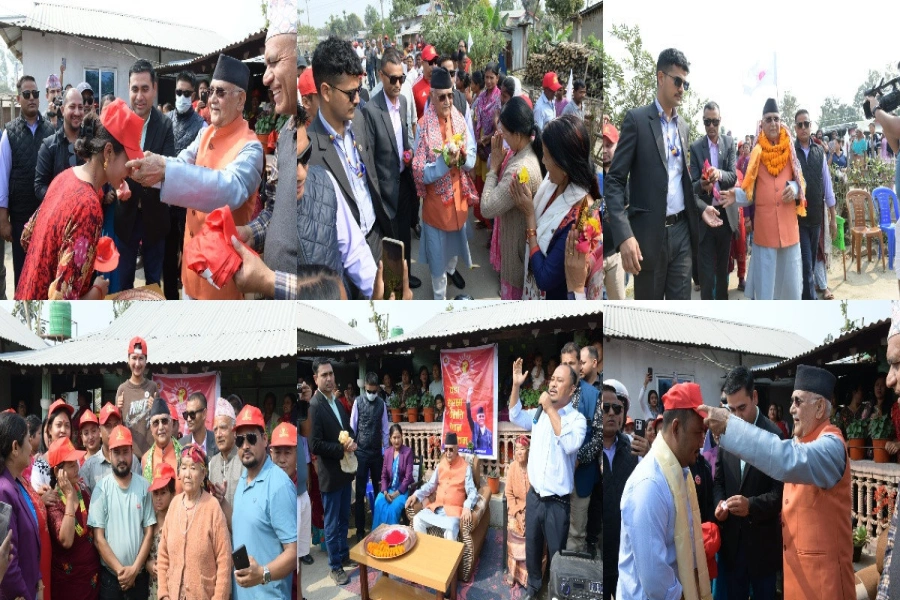Our bureaucracy still carries vestiges of Rana and Panchayat eras. It is in dire need of sweeping overhaul to meet challenges of new era
Internationally, a new era is looming politically, economically, socially and technologically. Democracy has been questioned for being elite-centric, limited to electoral participation of people, geometrically widening inequality, fostering injustice on the poor and alienating the general public. This is why there has been a call for a resilient and functional democracy that is inclusive in political, economic, social, environmental and technological spheres, that demonstrate clear deliverables to people and that is suitable to country’s political and cultural context.
In economic sphere, it has been recognized that market is not self-correcting and the need for vigilant and robust government has been acknowledged to steer economy in the right direction. At the same time, digitalization of businesses and governance together with significant achievements in artificial intelligence has ushered in the era of fourth industrial revolution. Wounded by homogenizing globalization, untenable inequality and further marginalization of weaker sections of the society, resurgence of fundamentalism and mass migration are reshaping social texture around the globe.
Nepal has undergone an astounding transformation via most democratic method of constitution writing while institutionalizing republicanism, federalism and devolution of power to local institutions. The new government with sufficient command in the parliament has clearly stated its economic ambition of doubling per capita income within the next five years. But the government cannot be better than its bureaucracy, as the saying goes. Our bureaucracy still carries vestiges of Rana and Panchayat eras and is in dire need of sweeping overhaul to meet the challenges of the new era. The old bureaucracy cannot live up to the targets the new government has set.
Decoding our Politico-Bureaucracy

Reforming bureaucracy
Reforming bureaucracy is a vast and complex undertaking. But timely interventions on some of the critical areas can bring positive results. The first initiative should be focused on upholding its image. People think of our bureaucracy as corrupt, procrastinating, buck-passing, rent-seeking and unaccountable. This perception needs to be corrected.
Need and greed are twine driving forces of corruption. While need should be addressed by legitimate payments, corruption by greed should be severely punished. Regarding pay scale, the government can institute a standing mechanism for periodic automatic review based on scientific criteria. Most frequently, pay rise in public sectors leads to inflationary pressure neutralizing real effects to the standards of living of employees. Thus the focus should shift towards other benefits and facilities such as housing or quarters, full health insurance and education allowance for the families of civil servants.
Second, procrastination should be replaced by objective performance management and that should commence from the top as higher authority lies thereof. Every year the government may sign performance contract with top executive on matters of performance based on its budget and programs and with clear targets. For annual evaluation of such performance, the government can institute an accountability center led by Prime Minister and comprising other ministers as well as experts and civil society members. The Secretary should oversee core tasks and most routine tasks can be delegated to heads of divisions and departments. Failing to meet the targets for three consecutive years ought to invite a scope for a new capable candidate. High performance should be invariably recognized and rewarded.
Cumbersome administrative procedure involving long hierarchy, various referrals and traditional mode of communication are other stumbling blocks of smooth bureaucratic performance. Written delegation of power and implementing clear job description can go a long way in rectifying this. Rules for internet based communication need to be formulated. Administrative procedure legislation providing for formulation of standard operating procedures (SOPs) by each institution needs to be enacted so that files and letters cannot be hidden under the table indefinitely. Such legislation, apart from regulating inter-agency coordination and communication, should also govern handling grievances of the citizens.
As personnel need to be accountable for performance, their capacity must also be enhanced. Traditional ways of training programs and study courses are not irrelevant, but online courses can be developed and imparted to personnel in collaboration with universities and training institutions. Online courses can help personnel go for continuous learning. A good mind possesses a kingdom. It is the development of brain power that opens vistas of development of individual potential and it is the utilization of such brain power of professionals that helps realize the institutional goals in this new era. Knowledge and innovation are at the core of new industrial revolution.
Because performance is for people or citizens who can ultimately hold professionals as well as politicians accountable, their participation in policy, plan and project cycles will be consequential. People are variously organized or disorganized across different themes, ideas, goals and values. Networking such networks by identifying key stakeholders are of crucial importance. A good policy is one which has sound conceptual or theoretical foundation, which is supported by data analysis and result from deliberation across wide spectrum of stakeholders and citizens. Only well-founded policies or plan can be implementable and yield result. It is better to develop a standard policy procedure or manual while providing certain flexibilities depending upon context.
If we are to enable our bureaucracy to meet ambitious targets, we must revamp performance management and administrative procedure, enhance personnel capabilities and bring sound governance policies. A good beginning makes a good end. Time to hit the road.
The author is Section Officer at Ministry of Foreign Affairs. Views are personal






































